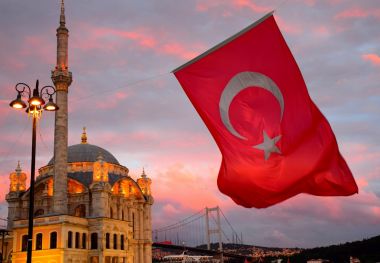Turkey's highest court upholds expulsion of 9 foreign Christians for 'missionary activities'

(CP) Turkey's Constitutional Court has confirmed the government's decision to expel nine foreign Christians for alleged "missionary activities," labeling them a national security risk.
The court ruled that this designation, under the controversial "N-82" immigration code, does not violate the foreigners' rights despite their legal residence status in the country. The majority cited the "framework of the wide discretion of the public authorities regarding immigration and border controls."
"As a matter of fact, the applicants have no complaints that they encountered any obstruction or discriminatory treatment in fulfilling their religious beliefs while they lived in Turkey," the ruling states. "In addition, it should also be taken into consideration that applicants Helmut Frank and Matthew Vern Black, for whom the N-82 restriction code was applied, left Turkey voluntarily, while applicants Amanda Jolyn Krause and Jeremy Lauren Lambert are still in Turkey."
The decision marks a significant moment in Turkey's judicial history, being the first joint decision concerning multiple N-82 code cases, according to the legal group ADF International.
In a statement, the religious freedom legal organization stated that the court has historically ruled unanimously against foreign Christians in similar cases. But this latest ruling showed division among the judges, allowing dissenting opinions to surface.
Constitutional Court President Judge Zühtü Arslan presented a dissenting opinion. He argued that there was no evidence suggesting that the appellants' activities threatened public order or security.
"There is no concrete justification provided in either the administrative or judicial processes in the concrete case to suggest that the applicants' activities pose a threat to public order or security," Arslan stated. "Conversely, it is impossible to categorically and abstractly regard the 'missionary' activity directed at the applicants as a threat to public order or security."
Arslan refuted the majority's assertion that "it is clear that there was no interference with the applicants' freedom of religion."
"Essentially, it is understood from the statements made both in the 'Events and Facts' section of the decision ... and under the heading 'Applicants' Allegations and Ministerial Opinion' ... that the N-82 restriction code was applied to the applicants due to their missionary activities," Arslan wrote. "It is beyond explanation that this constitutes an interference with the applicants' freedom of religion."
Since 2018, about 185 foreign Protestant ministers have been deported or banned from reentering Turkey, often without clear justification or access to the intelligence reports used against them, according to ADF International.
"The government's discriminatory targeting of Christian religious workers in Turkey, all of whom have peacefully lived in Turkey for many years, constitutes a clear violation of both the European Convention on Human Rights and the International Covenants to which Turkey is a party," said Kelsey Zorzi, director of advocacy for global religious freedom at ADF International.
She said the country makes systemic efforts to suppress Christian beliefs, noting an increase in foreign Christians deemed threats to national security annually.
The affected individuals, part of a larger group of over 30 foreign Christians tagged with the N-82 code, have been engaged in religious work across Turkey. This ruling follows several individual cases that reached the Constitutional Court, with this being the first collective judgment delivered by the court's General Assembly.
Orhan Kemal Cengiz, one of the lawyers representing the applicants, pointed out the contradictions in the majority's ruling and the lack of evidence supporting the expulsion.
"The Court's opinion, as described by dissenting judges, is replete with contradictions. Despite the clear evidence that these foreign individuals were expelled due to their alleged missionary activities, the majority of the Court failed to see any infringements on freedom of religion," Cengiz noted.
Can Kurtulan, another lawyer, discussed the implications for religious freedom in Turkey.
"With this decision, the prevailing local jurisprudence that 'missionary activities fall within the scope of freedom of religion and thought but can be restricted within legal limits' has been effectively nullified," he said.
The decision also underscores a worrying trend in Turkey, where nationalism and Islamization pose increasing challenges to religious minorities, especially the Christian community, which numbers about 170,000 in a predominantly Muslim population of 83 million, said ADF International.
Turkey is a party to the Lausanne Peace Treaty, which recognizes Jews, Orthodox Greeks and Armenians, but not Protestants.











